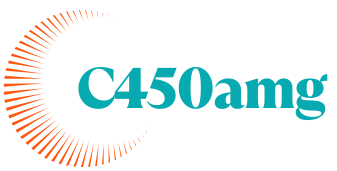Table of Contents
ToggleEver thought about what it takes to learn software development? Picture this: you sitting at your keyboard, debugging like a pro and creating your own apps that impress your friends (and maybe even your boss). With so many programming languages, tools, and methodologies out there, diving into software development can feel a bit daunting. But fear not. It’s not just about looking cool in front of a computer screen: it’s about unlocking a world of possibilities in technology. Let’s explore how anyone can jump into this thrilling journey of coding with confidence and flair.
Understanding the Fundamentals of Software Development

Software development isn’t just a fancy term: it’s the backbone of the tech world we live in today. First things first, let’s break down some key concepts and terminology that every aspiring developer should know.
Key Concepts and Terminology
Understanding variables, loops, and functions is like knowing the alphabet and grammar of programming. Variables store information, loops allow developers to repeat tasks, and functions are reusable blocks of code that can simplify complex operations.
Next, let’s discuss software development methodologies. Agile, Waterfall, and DevOps are just a few approaches that guide developers in managing projects. Each methodology serves a purpose, with Agile focusing on flexibility and collaboration while Waterfall is structured and sequential. Knowing these methodologies can make or break a project, shaping how teams communicate and meet deadlines.
Choosing the Right Programming Language
Once the fundamentals are clear, the next hurdle is choosing the right programming language. With an array of languages available, knowing where to start can be overwhelming.
Popular Programming Languages for Beginners
Python is often hailed as the easiest language for novices. Its clear syntax and versatility make it a fantastic starting point, especially for web development and data analysis. JavaScript is another powerhouse, particularly for anyone interested in front-end web development. And for those who want to jump into mobile app development, Swift for iOS or Kotlin for Android are the heroes of the story.
Factors to Consider When Selecting a Language
When selecting a programming language, consider these factors: your career goals, the industry you’re targeting, and the community support surrounding that language. If you’re aiming for a career in game development, C# and C++ are key players. Conversely, if data science is calling, diving into R or Python would be smart. Community support is crucial: languages with robust communities mean more resources, tutorials, and help when the going gets tough.
Essential Tools and Environments for Software Development
No developer can thrive without the right set of tools. Familiarizing oneself with essential development environments can significantly boost productivity.
Integrated Development Environments (IDEs)
IDEs like Visual Studio Code or IntelliJ IDEA streamline the coding process by offering features like code completion and debugging tools all in one place. This means zeroing in on coding without getting lost in switching between different applications.
Version Control Systems
Git is the version control system of choice for many developers, enabling them to track changes in their code effortlessly. It’s like having a time machine for your project. Whether you’re working solo or as part of a team, mastering Git is a pivotal skill that ensures smoother collaboration and disaster recovery.
Building Your First Project
Ready to get your hands dirty? There’s no better way to solidify your skills than by building your first project.
Step-by-Step Guide to Creating a Simple Application
- Choose Your Project: Pick something simple, like a to-do list app or a personal blog.
- Set Up Your Environment: Download the necessary IDEs and libraries you’ll need.
- Start Coding: Break the project down into manageable parts. Write your code for each segment, testing along the way to catch any bugs early.
- Seek Feedback: Share your project with others. Constructive criticism can help refine your skills remarkably.
- Iterate: Just like a fine wine or a well-aged cheese, your project will improve with time and modifications.
Testing and Debugging Your Code
Every developer knows that testing and debugging are as critical as writing code itself. Without them, even the most beautifully crafted applications can fall apart.
Best Practices in Software Development
Implementing a testing strategy from the get-go can save headaches later. Unit testing helps ensure individual components work as expected, while integration testing checks how well various parts of the application interact. Debugging tools built into IDEs can also guide developers when the code doesn’t behave as anticipated. Remember, even the best programmers learn to embrace their mistakes as stepping stones to greatness.
Learning Resources and Communities
In today’s digital age, self-learning has never been easier. Various resources can get you on the fast track to software development proficiency.
Online Courses and Tutorials
Web platforms like Udemy, Coursera, and Codecademy offer structured courses ranging from beginner to advanced levels. Pairing video tutorials with hands-on practice enhances retention and comprehension.
Joining Developer Communities
Finding a community can provide invaluable support. Platforms like Stack Overflow and GitHub not only allow you to ask questions but also expose you to other developers’ work. Participating in these communities fosters growth and connection.




